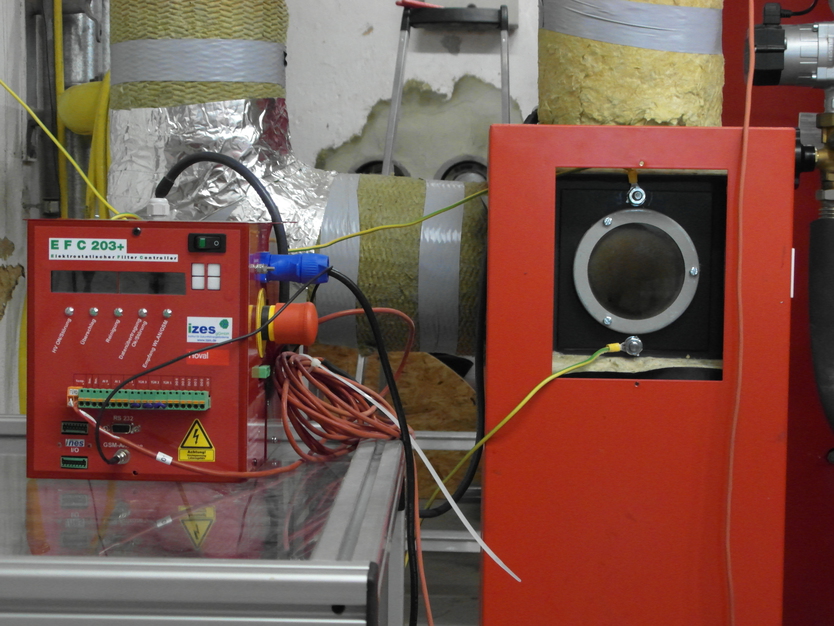
Controller and box - IntElekt
© IZES gGmbH
Timber-based biogenic fuels such as pellets made of waste wood, straw-type materials, dried biomass and biochar often generate high dust emissions when combusted for energy purposes. This therefore requires innovative separation technologies such as electrostatic precipitators, but these are currently only available to private consumers in isolated cases. The transfer of a filter prototype to market and series maturity was therefore the aim of the "Integrated electrostatic precipitator in small-scale production testing" research project (IntEleKt), which was completed at the end of March 2018.
The project partners, comprising the Institut für ZukunftsEnergie- und Stoffstromsysteme (IZES) gGmbH and Hoval GmbH, worked on the development of an electrostatic precipitator that was intended to be not only robust, simply constructed and cost-effective but above all easy to integrate into the boilers of as many providers as possible.
Since the research project began in autumn 2014, the modularly constructed electrostatic precipitator was tested in 16 boiler systems spread throughout Germany from different manufacturers: the operation in the winter heating periods enabled conclusions to be drawn about the optimisation potential, which was then utilised during the summer months to implement and evaluate appropriate measures. For example, a pre-production model was already available in 2016 whose operational management had been optimised in 2015 and which had undergone further improvements in 2016 in terms of, for example, the electromagnetic compatibility, the insulators and the separation efficiency.
The project was funded as part of the "Biomass Energy Use" research programme funded by the German Federal Ministry for Economic Affairs and Energy (BMWi).


